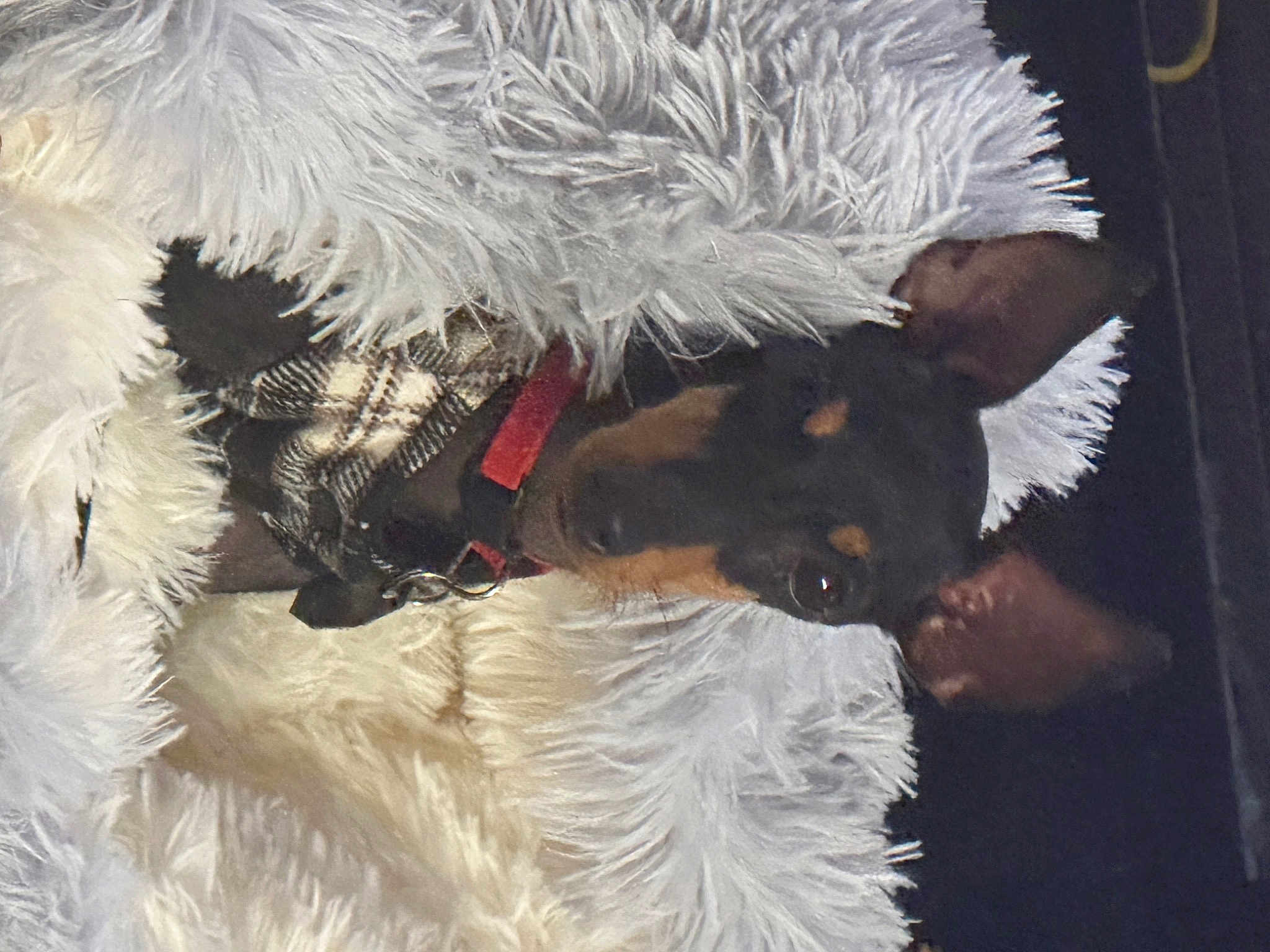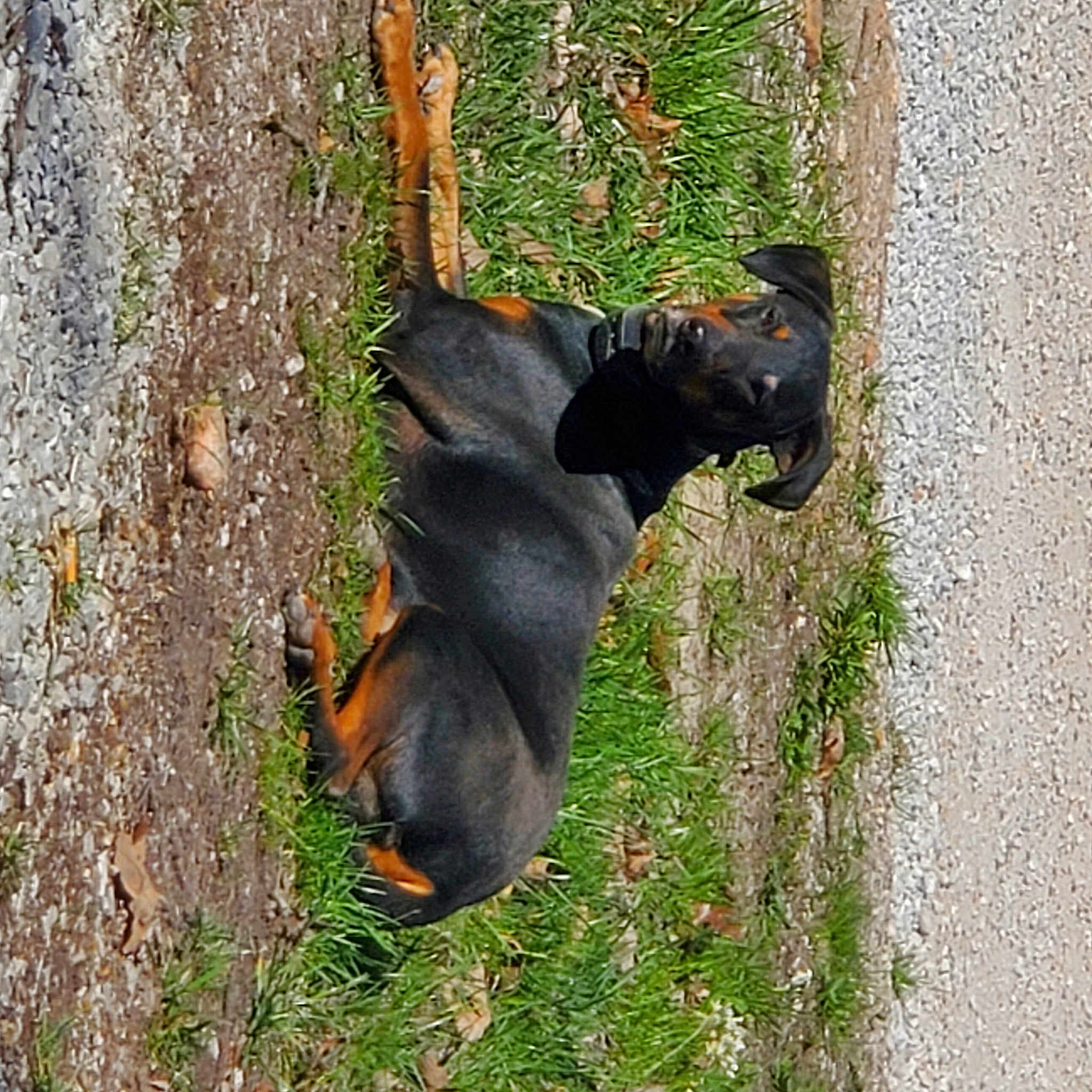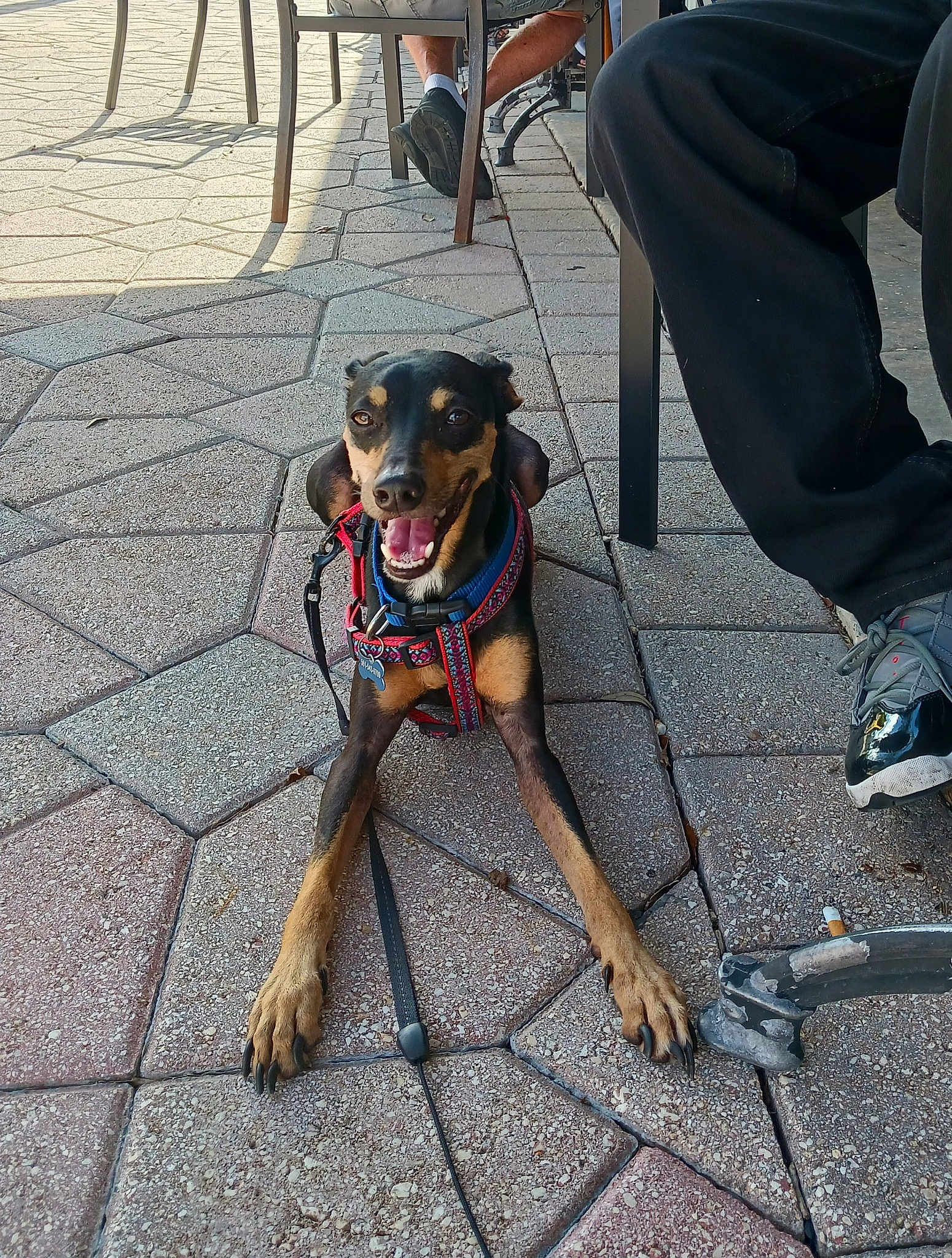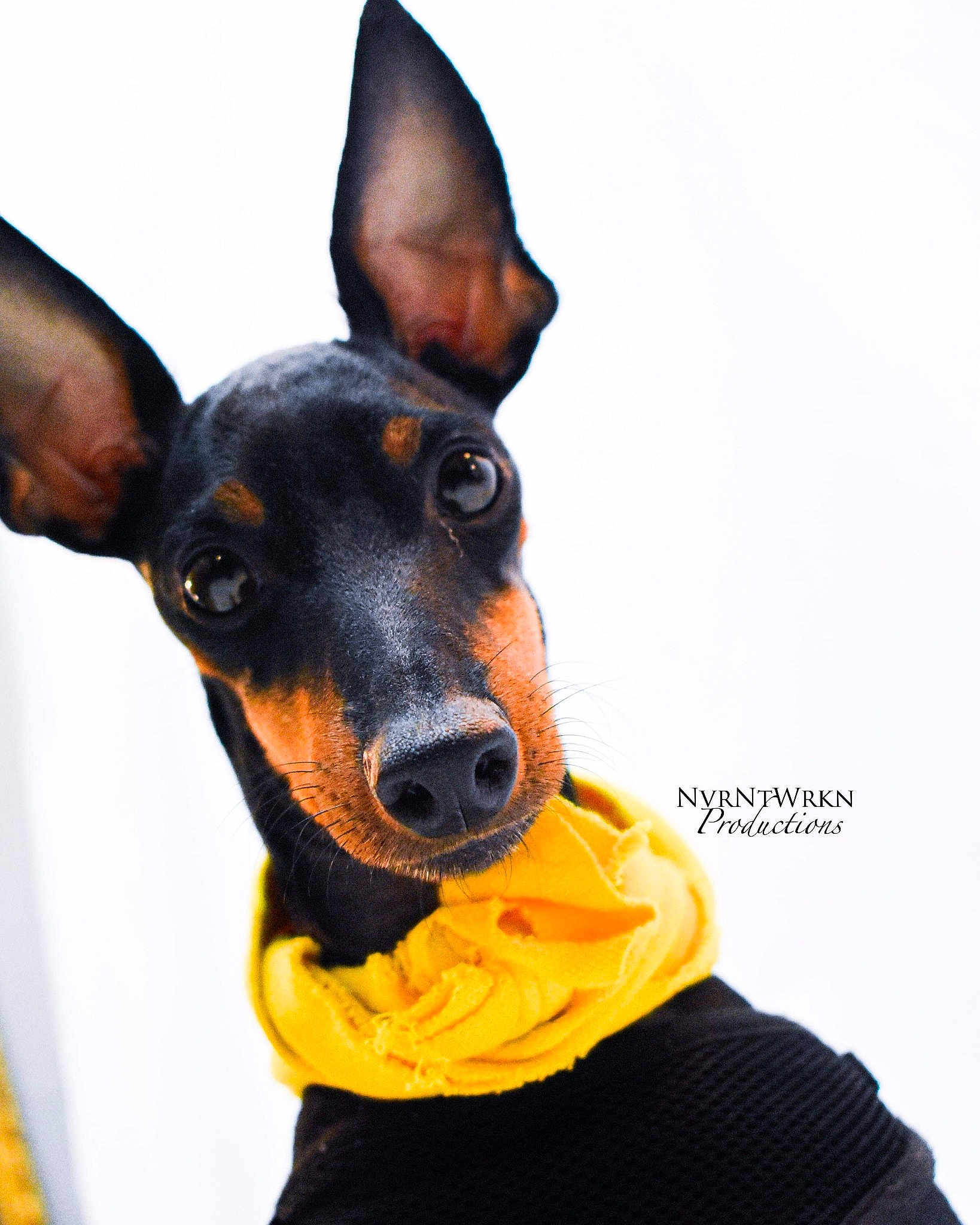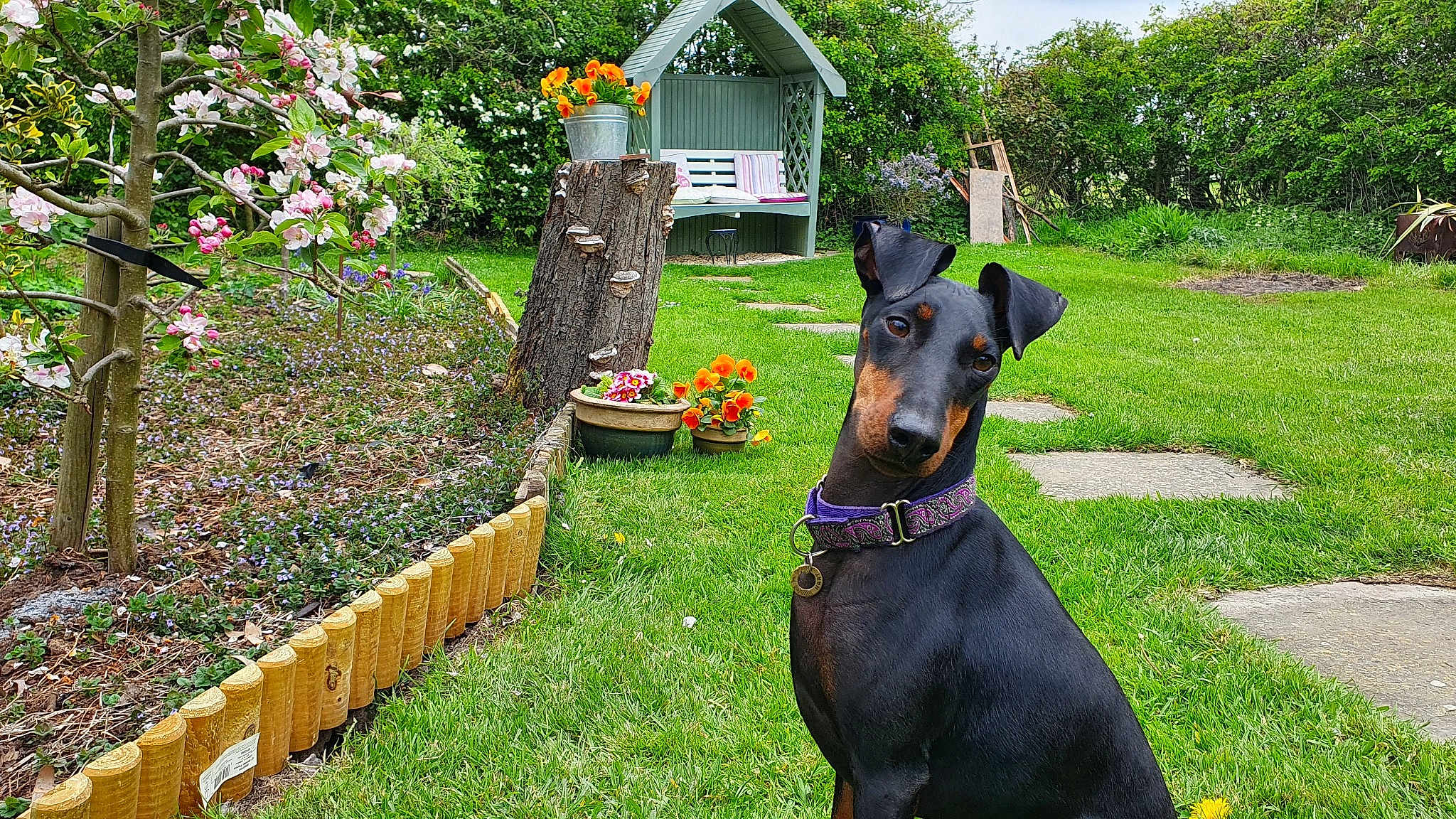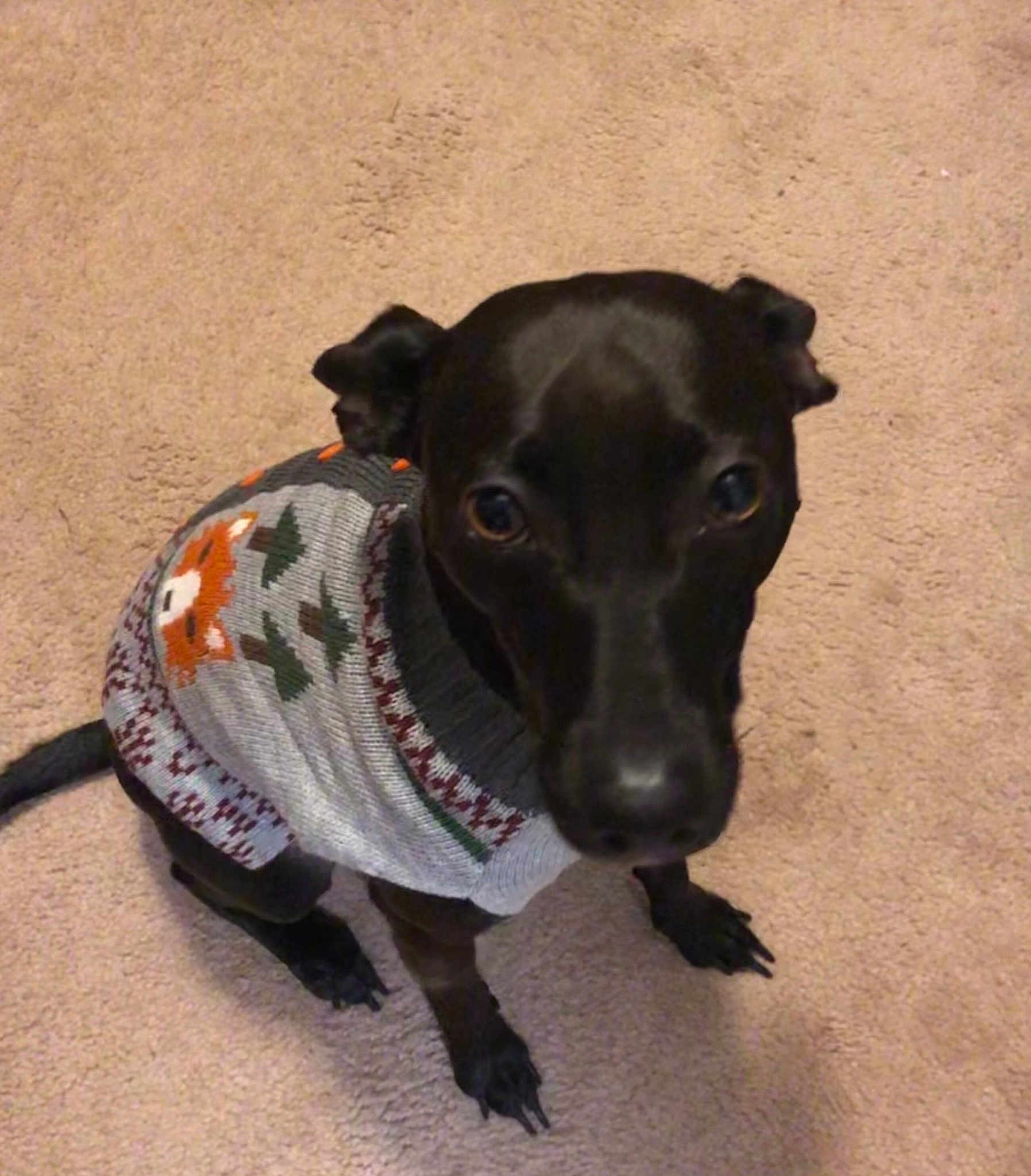
"In the 19th century, Manchester Terriers were the preferred breed for warding off rodent infestations in homes and stables. Known as “ratters,” these dogs showcased not just skill but a keen determination, traits that have evolved yet remain intrinsic in the breed today."
Personality and Behavior of the Manchester Terrier
The Manchester Terrier, though small in stature, is full of spirit and energy. Often described as lively and intelligent, this breed is known for its loyalty and keen senses. Owners of Manchester Terriers usually notice that their dogs are not just companions but vigilant guards of their domain. Their alertness means they are quick to signal the approach of someone unfamiliar, making them excellent watch-dogs despite their size.
Manchester Terriers also exhibit a strong sense of independence. They are not shy about making their desires known, displaying a tenacity that can sometimes be mistaken for stubbornness. However, this independence is balanced with a familial loyalty that makes them deeply affectionate with their human family.
Socialization is important for Manchester Terriers. Without adequate interaction and exposure during their formative months, they can become wary or even aloof around strangers or new environments. Nonetheless, with proper training and social experiences, they become well-rounded dogs, comfortable in various settings.
Did you know that the Manchester Terrier's agile and lively nature has led to comparisons with cats in their ability to leap and their curious exploration habits?
Meanings, History and Origins of the name Manchester Terrier
The name "Manchester Terrier" offers a glimpse into the breed’s origins rather than just a whimsical moniker. Named after the city of Manchester in England, these dogs were developed in the 19th century. The industrial city was teeming with vermin, and the Manchester Terrier was specifically bred for its ability to keep rat populations under control.
The history of this breed is deeply intertwined with the working-class ethos of the region. Manchester Terriers were not just pets but essential members of households and farms where they worked diligently. Over time, these dogs transitioned from being primarily “ratters” to beloved companions, yet their legacy as industrious and determined dogs remains.
The breed’s ancestors include the Black and Tan Terrier, known for its hunting prowess, and the Whippet, contributing to the Manchester Terrier's agility and speed. This combination of traits has given the Manchester Terrier a unique skill set and a distinct place in the lineage of dog breeds.
Popularity of the Manchester Terrier
The Manchester Terrier’s popularity has seen ebbs and flows over the centuries. Initially, their rat-catching abilities made them immensely popular in urban settings, particularly during the 19th century. In English-speaking countries like the UK and the United States, the breed has enjoyed a steady, if not spectacular, following.
In the United States, the Manchester Terrier is recognized by the American Kennel Club (AKC) and has a dedicated niche of admirers. Breed clubs and enthusiasts pride themselves on maintaining the historical standards and promoting the breed’s many virtues.
Across the globe, the breed’s status varies. In some countries, the Manchester Terrier is a little-known breed, primarily loved by those who appreciate its unique history and characteristics. However, in European countries close to England, the roots of its origin, the Manchester Terrier maintains a stronger presence.
Health and Care of the Manchester Terrier
Health-wise, the Manchester Terrier is a relatively robust breed, but like all dogs, they have specific health concerns owners should be aware of. Common issues include patellar luxation and certain heart conditions, such as mitral valve disease. Regular veterinary check-ups are essential to catch these potential health problems early.
Dietary needs for the Manchester Terrier are straightforward. A balanced diet with high-quality dog food designed for small breeds usually suffices. Owners should be cautious about overfeeding, as the breed can be prone to obesity if their active lifestyle is not adequately supported by proper nutrition.
Exercise is vital for the Manchester Terrier’s well-being. Daily walks, combined with playtime and mental stimulation, ensure that these energetic dogs stay healthy and happy. Grooming, on the other hand, is relatively low-maintenance. Their short coat requires minimal brushing, but regular dental care and nail trimming are essential.
Training and Education of the Manchester Terrier
Training a Manchester Terrier can be a rewarding experience due to their intelligence and eagerness to learn. Positive reinforcement techniques work best, as these dogs respond well to praise and treats. It is important to start training early to establish good behavior patterns that will last a lifetime.
One common challenge with Manchester Terriers is their independent streak. They may sometimes test boundaries, but consistent training and clear communication can overcome this. Socialization from a young age is crucial to prevent any potential behavioral issues related to shyness or aggression toward other dogs or people.
Obedience training, agility, and even trick training can be enjoyable activities that stimulate the Manchester Terrier’s mind and body. These dogs thrive when given tasks and challenges, and their problem-solving abilities can be quite impressive.
Choosing the right dog is a deeply personal journey, considering lifestyle, family dynamics, and personal preferences. The Manchester Terrier might be the perfect match for those who appreciate a small, energetic dog with a rich working heritage and an enduring spirit.
Breeds hold a unique place in our lives, often reflecting our history and culture. At KingPet, we see many Manchester Terriers participating in contests, capturing the essence of their spirited and independent nature. Choosing a Manchester Terrier means welcoming a piece of history and a loyal companion into your home.














